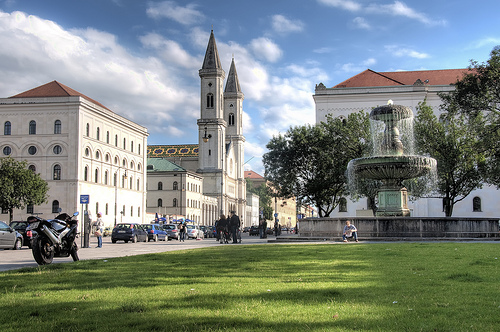Remember the notion that technology would destroy the idea of place, creating work forces of telecommuters and disembodied companies — or universities, for that matter — that were no longer anchored anywhere because they did not have to be? Turns out to have been entirely wrong, say Northeastern officials, who are enthused over what they see as a post-recession technology boom in the making in places like Seattle, and one where postgraduate science and technology workers are in particularly short supply
Being where the action is, with a smile and shoeshine and the reputation of a 114-year-old research university to back it all up, they say, is more important than ever. Starting in January, Northeastern will offer online graduate-level courses here, taught by instructors back East, alongside real classroom courses in a Seattle neighborhood called South Lake Union, once more known for warehouses than Wi-Fi. In recent years, a cluster of health science research and computer science companies have also gathered to rub shoulders with Amazon.
“You have to be present on the ground, you have to understand the community, you have to become part of the community,” Northeastern’s president, Joseph E. Aoun, said in a telephone interview. A reliance on remote learning alone does not, he said, build relationships, a word he used repeatedly. “It’s mutually reinforcing — the virtual is going to lead you to have the need for a physical presence and physical contact,” he said, “and the physical contact is being supplemented by the virtual dimensions.”
Economists and urban affairs experts say that in a strange way, the Great Recession intensified the concentration of technology workers here that Northeastern is aiming for. Industries like finance and construction, which had been big local job generators before the crash, fell away sharply, but Seattle-area stalwarts like Amazon, Boeing and Microsoft continued to grow, or at least hold stable. At the same time, the University of Washington — the dominant higher education institution in Seattle, and also a neighbor to Amazon — got battered by years of deep budget cuts and tuition increases during the recession, as did many other public universities across the nation.
Northeastern’s Wikipedia page suggests it has other branch campus plans:
The university plans a number of remote campuses in several cities in the United States. The first campus, in Charlotte, North Carolina. opened in October, 2011; a Seattle campus is planned for 2012, and Silicon Valley (California), Austin, Texas, and Minneapolis for future years.[18]
The school clearly has been making interesting strategic moves in recent years, including a paring down of its undergraduate class to increase its admissions competitiveness. It’s also very focused on certain areas of research. So perhaps this “beachhead” presence in tech hubs such as Austin, Seattle, Charlotte and Silicon Valley help its professors and students land grants, gigs and jobs? It will be interesting to see how the strategy works out… misnomers and all.




 -0.45
-0.45 +0.33
+0.33 +8.77
+8.77 -0.28
-0.28 -0.029
-0.029 +0.02
+0.02 -0.275
-0.275 -0.58
-0.58 -0.195
-0.195 +0.07
+0.07 -0.66
-0.66 -5.999
-5.999 -0.07
-0.07 -0.40
-0.40 0.00
0.00 -0.0158
-0.0158 0.00
0.00 -0.3775
-0.3775 -0.08
-0.08 -4.54
-4.54
Leave a Reply